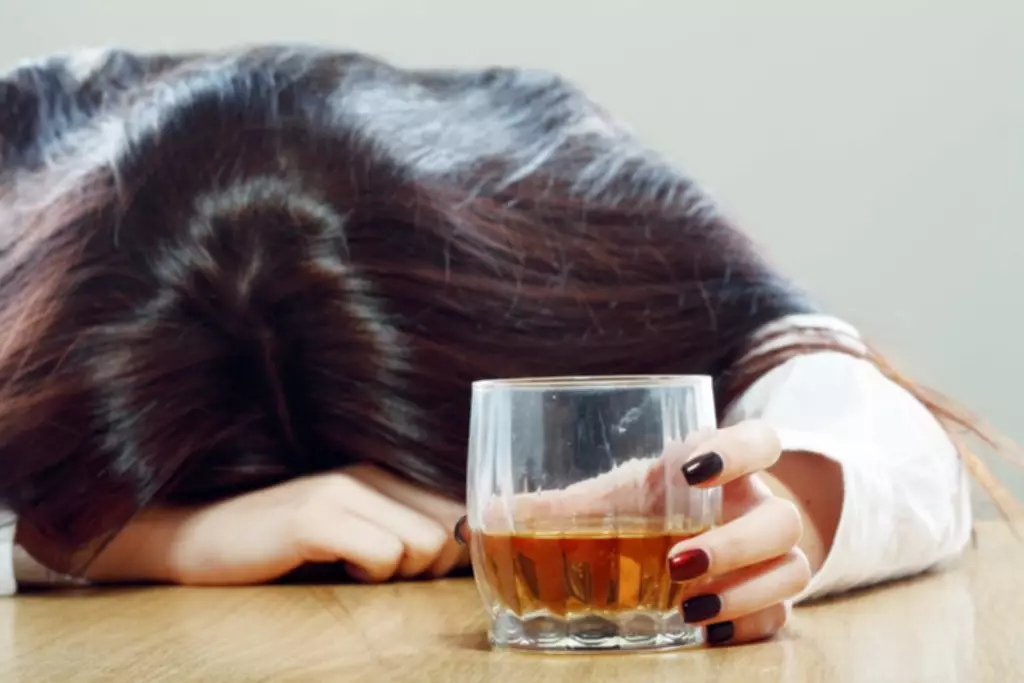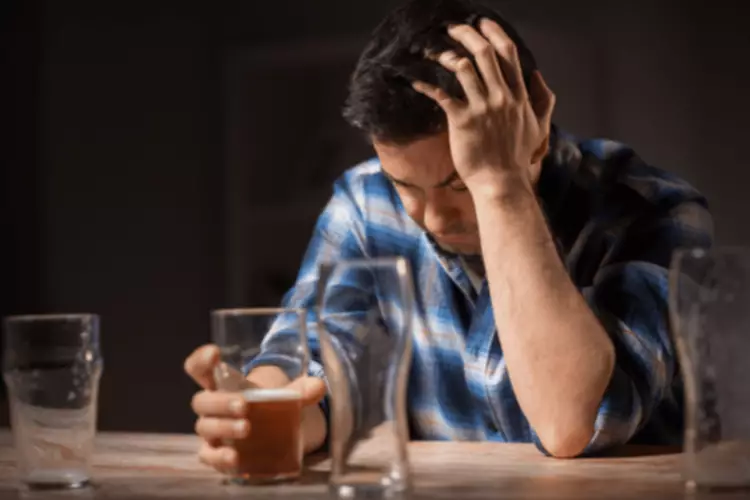Not only can alcohol indirectly cause conditions that can lead to back pain, long-term and heavy drinking can also worsen diseases patients already may be suffering from. When patients have problems like kyphosis, degenerative disc disease or vertebrae damage due to osteoporosis, alcohol consumption can boost the damaging of the nerve fibers that are exposed. This is essentially the same mechanism of what occurred during alcoholic neuropathy. Another potential cause of back pain linked with heavy alcohol consumption could present in the form of kidney stones. These pesky precipitates are able to form during times of low water status.

Find more top doctors on
Alcohol use disorder (AUD) is a substantial public health problem, affecting 15.7 million people age 12 and older in the United States (Center for Behavioral Health Statistics and Quality 2016). In 2012, 5.9 percent of all global deaths were attributable to alcohol—7.6 how does alcohol affect the kidneys percent for men and 4.0 percent for women. Moreover, alcohol-attributable deaths have increased worldwide, making alcohol the fifth leading risk factor for premature death and disability in 2010 and the first among people ages 15 to 49 (World Health Organization 2014).
Can You Drink Alcohol with Chronic Kidney Disease?
The right treatment option for kidney pain related to alcohol depends on the cause. The kidneys are the body’s primary tool for filtering out dangerous substances, so issues affecting the kidneys can quickly affect the rest of the body, potentially causing problems in multiple organs. A person may feel intense back pain or pain in their genitals or stomach as the body attempts to pass the stone. If the body does not pass the stone, a person can develop a severe infection or blockage. Try swapping out alcoholic drinks for alternative beverages such as juices and teas. Coconut water, apple cider vinegar drinks, and hot chocolate are great options.
How Alcohol Affects Your Kidney Health
Clinical studies of hypertensive patients have demonstrated that reducing alcohol intake lowers blood pressure and resuming consumption raises it. Although the mechanisms responsible for these effects have not been established, an experimental study by Chan and Sutter (1983) offers some insight. The Centers for Disease Control estimates that most American adults (two out of three) drink alcohol.
Farxiga side effects: Common, rare, and serious – Medical News Today
Farxiga side effects: Common, rare, and serious.
Posted: Wed, 24 Nov 2021 16:22:04 GMT [source]
Want to protect your brain? Here’s what you need to know about alcohol consumption.
Excessive drinking overworks the organ, thus increasing the risk of kidney diseases.Blood alcohol levels can also shoot to a dangerous level through binge drinking. This depends not only on the personal health conditions but also on medications prescribed. Many medications can seriously harm kidneys when combined with alcohol. Common causes of kidney pain include kidney stones, kidney infection, dehydration, kidney trauma, polycystic kidney disease, and kidney cancer. The pain will often resolve when the underlying condition is treated. Over-the-counter or prescription painkillers, heat therapy, and ample hydration can help ease the discomfort and pain.
When this balance gets upset, it could impair your kidneys and increase your chances of developing kidney stones. Kidney pain after drinking alcohol may occur due to acute kidney injury or an infection. Moderate drinking should not cause kidney pain, but binge drinking or frequent drinking may cause kidney problems. Regular, heavy alcohol use can also be harmful to your kidneys over time. According to the National Kidney Foundation, regular heavy drinking can double the risk of chronic kidney disease. The risk is even higher in people who drink heavily and also smoke.
Understanding the Relationship Between Alcohol and Kidney Cancer
- When it comes to adults, excessive alcohol use can cause multiple well-defined brain issues ranging from short-term confusion to dementia.
- The symptoms can also vary based on the underlying cause, ranging from a dull, creeping ache to a deeply intense pain accompanied by vomiting and fever.
- Acute kidney injury usually goes away in time, but in some cases, it can lead to lasting kidney damage.
Other injuries may require laparoscopic (“keyhole”) surgery or open surgery to repair the damage. Uncomplicated pyelonephritis responds especially well to fluoroquinolone antibiotics but can also be treated with extended-release penicillins, cephalosporins, and Bactrim (trimethoprim-sulfamethoxazole). Kidney cancer is often asymptomatic (without symptoms) during the early stages and will often only cause symptoms when the disease is advancing. Urinary tract infections (UTIs) are caused by bacteria that enter the urinary tract. This not only causes pain when you urinate, known as dysuria, but can lead to fever and the need to urinate frequently. It could be your kidney and not your back if you feel it higher on your back.
- For example, a person with a UTI that spreads to the kidneys can develop sepsis, a dangerous infection of the blood.
- A liver is a major organ which can be affected by excess alcohol consumption.
- UPJ obstruction can be treated with a minimally invasive procedure.
- Diet changes can also help—like not eating three hours before bedtime and avoiding foods that can make reflux worse—like coffee or caffeinated foods, spicy foods, chocolate, alcohol, peppermint, and fatty foods.
- You should do the same if you have kidney pain and are suddenly unable to urinate.
One reason alcohol may affect the kidneys is through acute kidney injury. This may result from high levels of toxins leading to tissue injury and inflammation. Alcohol affects the kidneys’ ability to keep the correct balance of water and electrolytes in the body. This leads to impaired function of the kidneys and increases the risk of developing kidney stones. Chronic dehydration puts you at greater risk for these adverse effects. Similarly, there’s minimal evidence to suggest that alcohol increases the risk of kidney stones or kidney infections.
Often, you’ll feel kidney pain on the left or right side of your back under your ribs. The National Kidney Foundation estimates that each year more than half a million people go to emergency rooms for kidney stone problems. Alcohol can worsen the side effects of chemotherapy and other cancer treatments, such as nausea, dehydration, diarrhea, and mouth sores. Alcohol may also indirectly increase your risk of developing a UTI, which can cause kidney or abdominal pain.























